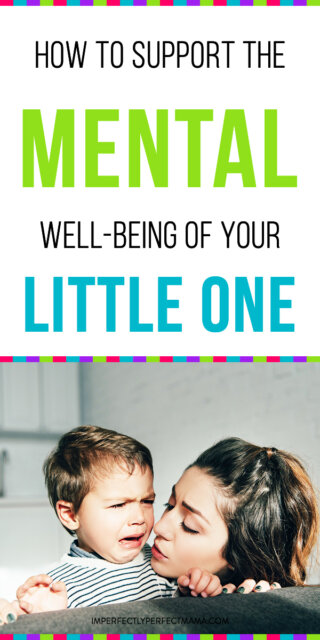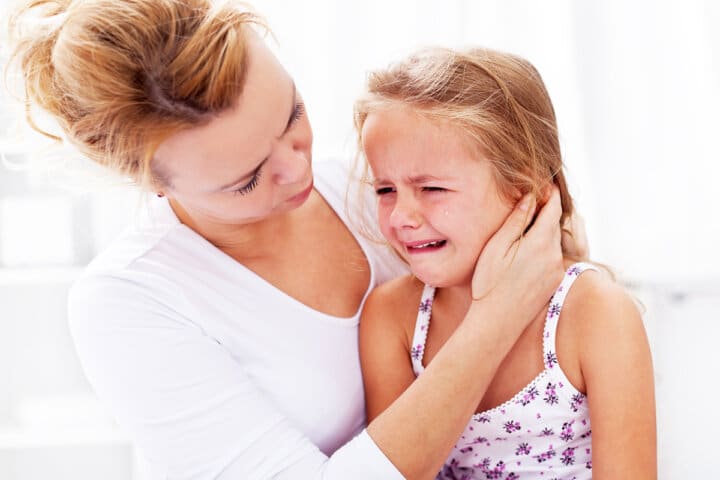Children often need help in coping with their emotions and feelings.

They are not that experienced and not physically ready to do that on their own.
They may feel anxious, angry, stressed, excited or impatient and they show that right away – and usually in the ways which are not pleasant for their parents or other people around them.
Adults having the mental capability, experience and empathy should guide little humans.
We can help them in this edgy journey of knowing yourself, getting accustomed to various emotions flooding whole little body, and learning to cope with them in a way that is comforting for the child and not that disturbing for people around him.
Why Little People Are So Caught By Emotions
The immature frontal cortex of the children is the cause of the inability to cope with emotions and impulses. Little persons simply are not capable of handling their mental state with discipline because they do not have the tools in their brains for that.
Children express their emotions, frustrations, happiness and other impulsive feelings instantly.
They are not able to analyze the situation calmly and ignore the irritant. Even not all adults can do that.
So sudden screams of disappointment or a loud shriek of joy is not planned and made on purpose to make the parents crazy. It is the expression of inner feelings the exact second they arose in those little heads.
The frontal cortex matures around the age of 25 and until that time dealing with emotions and impulses, making decisions, being able to make judgments is very limited and unstable.
The frontal lobe of children is developing in bursts and new functions are added throughout the childhood years.
The brain develops continuously and very actively.
Little heads are busy with loads of new information, experiences, skills and other various functions to be coped with.
Half of 5 years-old consumed calories are used for brain activity.
Parents being able to foresee the few steps ahead and monitor the well-being of their children and their own can make the first years of the little person’s journey towards growing up and becoming himself more understandable, foreseeable, pleasant and full of childhood joy and beautiful memories.
Ways to Enable Your Child To Cope With Inner Storms

There are a few ways you can help the little person to even their emotions and ease their inner stability before they get over-flooded with unexpressed words, thoughts, feelings, and emotions.
Physical Activity to Discharge
Friendly wrestling on the couch or a dynamic game outside will help your little human let the accumulated energy out.
Children, especially boys, are very physical in a way that their feelings and impulses need to be let out in a form of physical activity.
Active games outside, pillow fights, roughhousing, or chasing are great ways to unwind and release all the tensions gathered inside.
Play to Cope With Feelings
Play is the main job the little people are busy with from morning till night.
Play is their way to process accumulated feelings, emotions, and new or unpleasant experiences.
Free time for play is essential for children to reconnect with themselves after a long day full of guided and planned activities.
Laugh or Cry to Let It Out
Interestingly enough, these two opposing ways to express your status can help in reducing stress.
Laughter or cry decreases the stress hormones in your body and helps let all the accumulated “steam” out.
Laughing together also creates a strong bond with your child and is beneficial for both of you in terms of releasing anxiety, stress, and other unpleasant feelings.
Being in Nature to Calm Down
Research shows that nature has a therapeutic effect. Spending time outdoors reduces stress, anxiety, and helps to calm down.
Walking and playing in the park or forest, breathing fresh air surrounded by greenery, and flooded with sunlight is beneficial for physical and mental well-being.
Children having the possibility to spend time in natural surroundings has proved to be more self-esteemed and have improved learning abilities.
Studies show that adolescents spending more time in nature are more emotionally balanced and have better skills in coping with them.
Connection and Love to Secure
Feeling close to parents and safe in their arms, children are not afraid to show their emotions and feelings openly.
Which may be a starting point for parents to talk with their little fellows and know what is disturbing or hurting them.
By being respectful and showing loving attention, parents indicate that it is normal to feel the emotions. It is only the way of showing them how to cope with the impulses that need to be learned.
Children feel safer and calmer when they have someone to talk to and say how they feel.
Advantage of Not Leaving Your Kid Alone in This
Staying close with your little one in this phase of life when everything is so new and needs to be understood and coped with, you give your child a gift of growing with a feeling that he is not alone in this.
He is understandable and he has someone to rely on and turn to. Someone who loves him whatever mood he is in. Someone who is always there for him.
By staying connected to your child in the early years of childhood you contribute to his emotional and intelligent development by not leaving all the new experiences to be mastered for him alone.
You also offer support and love which will create a strong bond that will last to the adolescence and further.
Conclusion
Growing up isn’t easy. Children must face many challenges and they need our guidance and empathy in dealing with them. They need our love and help on how to become a human.
It may be exhausting and tiring to cope with the energy and stormy feelings of the little person in your house.
But knowing why it is happening and having ways to ease every day of your family can make this bumpy road into an amazing journey full of light and wonderful memories.
The best thing you can do during this hilly stage of child development is to change your expectations towards the mental and physical abilities of your little one and avoid unnecessary frustrations and anger in the family.




Leave a Reply